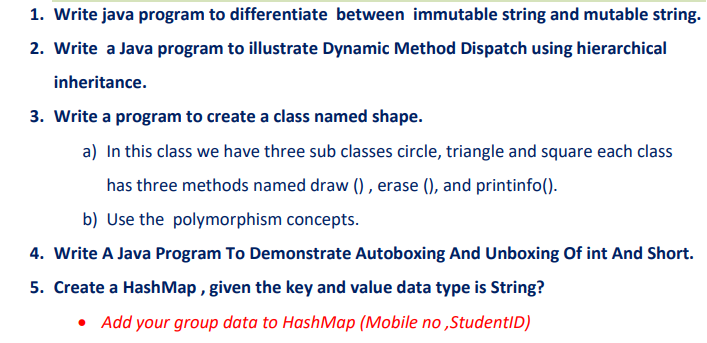Why Are Strings Immutable in Java? Discovering the Layout Choices
Why Are Strings Immutable in Java? Discovering the Layout Choices
Blog Article
Unalterable Strings: A Trick Part in Ensuring Information Uniformity and Integrity
In the realm of data monitoring, the importance of unalterable strings can not be overstated. These imperishable series of characters play a critical duty in promoting the honesty and precision of information within systems. By preserving a state of immutability, information uniformity is ensured, promoting a structure of reliability upon which important procedures count. The concept of immutable strings transcends plain triviality; it is a linchpin in the facility web of information administration. As we discover the advantages, execution methods, and functional applications of immutable strings, a clearer picture emerges of their crucial nature in guarding the digital landscape.
The Concept of Unalterable Strings
Immutable strings, an essential concept in programming, refer to strings that can not be customized as soon as they are created. Fundamentally, when a string value is appointed, any kind of procedure that shows up to change the string actually creates a brand-new string. This immutability makes certain data consistency and integrity in applications, as it prevents unforeseen adjustments to the original data.
Benefits in Data Consistency

Data uniformity is vital in different aspects of software advancement, consisting of database management, multi-threaded environments, and distributed systems (Why are strings immutable in Java?). Unalterable strings add substantially to attaining this uniformity by stopping information corruption because of simultaneous accessibility. In circumstances where numerous processes or threads interact with the same data all at once, immutable strings function as a protect versus race problems and synchronization issues
In addition, the immutability of strings streamlines debugging and testing processes. With unalterable strings, designers can trust that once a string is established, it will remain unmodified, making it simpler to map the source of errors and ensuring that examination cases produce regular results. This dependability in information dealing with inevitably causes more durable and secure applications.

Applying Unalterable Strings
Guaranteeing the immutability of strings requires a thoughtful strategy to their application in software application growth. When a string object is developed, one essential method is to create string classes in a method that prevents adjustments. By making strings unalterable, developers can improve data consistency and integrity in their applications.
To apply unalterable strings successfully, designers need to favor producing brand-new string things as opposed to customizing existing ones. This method ensures that when a string is assigned a value, it can not be altered. Furthermore, any procedure that appears to change the string should develop a brand-new string with the wanted adjustments as opposed to modifying the initial.
Furthermore, using unalterable strings can streamline concurrency management in multi-threaded settings. Because unalterable strings can not be transformed after production, they can be safely shared among several threads without the risk of data corruption.
Role in Integrity Assurance
In software program growth, the application of immutable strings plays an essential duty in guaranteeing the reliability of information procedures. Unalterable strings, as soon as produced, can not be changed, making sure that the data they stand for continues to be regular throughout the application's execution. This immutability home supplies a degree of guarantee that the data being processed will not be unintentionally transformed, leading to unforeseen outcomes or errors in the system.
By integrating immutable strings into software layout, designers can improve the integrity of their applications by reducing the risks associated with mutable data - Why are strings immutable in Java?. Immutable strings aid in protecting against information corruption or unintentional alterations, which can be especially vital when taking care of delicate details or when data stability is critical
Moreover, using immutable strings simplifies concurrent processing, as several threads can safely gain access to and share advice string data without the threat of one thread changing the content while one more is reading it. This aspect adds substantially to the overall reliability of the software system, making certain predictable and consistent actions in information handling procedures.
Applications and System Assimilation
The smooth assimilation of immutable strings into various applications and systems is essential for guaranteeing durable information consistency and reliability throughout varied technical environments - Why are strings immutable in Java?. Unalterable strings play an important duty in boosting the honesty of information exchanges and interactions within complex software program environments. By integrating immutable strings right into applications, designers can reduce the dangers linked with data tampering, unapproved adjustments, and unintentional changes, thus strengthening the general protection position of the system
In the context of system assimilation, look at here now unalterable strings act as a fundamental component for developing secure communication networks and helping with seamless information transfers between various parts. Their unalterable nature ensures that data transferred in between systems continues to be unchanged and proven, minimizing the chance of inconsistencies or mistakes that could compromise the honesty of the whole system. Moreover, immutable strings can boost interoperability between disparate systems by supplying a standard layout for information depiction, allowing much more reliable information handling and exchange procedures throughout interconnected platforms. By adopting immutable strings in applications and system assimilation processes, organizations can fortify their browse around this site information facilities and promote the dependability and consistency of their information possessions.
Final Thought
To conclude, unalterable strings play a crucial duty in keeping information consistency and reliability in numerous applications and system combinations. By ensuring that strings can not be altered once produced, the integrity of information is protected, decreasing the risk of incongruities and errors. Carrying out immutable strings can significantly enhance the integrity of systems, eventually resulting in more dependable and precise data processing.

Report this page